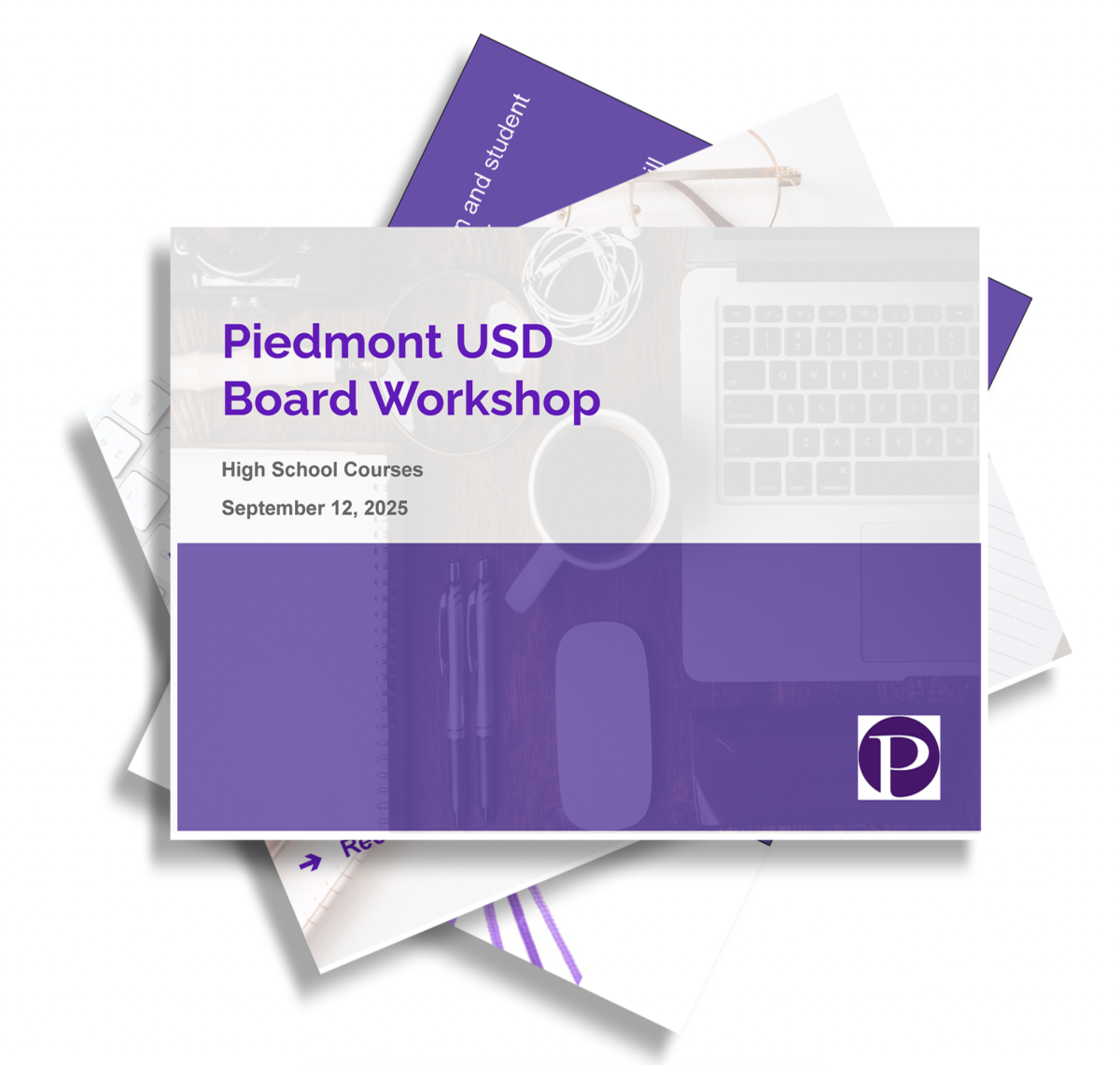When the incoming principal, David Yoshihara came into our journalism class to answer our questions, we asked him what he thought made Piedmont unique. He thought for a moment, then said that Piedmont stood out as a place where the school and the community were very intertwined.
Although he’s barely stepped into the district—he’s absolutely right.
In many ways, our community connection is essential; Piedmont citizens provide support when our schools need it, like passing a parcel tax to aid teacher salaries or building our new pool. But it also means that our school is intertwined with the demands and values of our community which plays an important role in how our schools are run.
Students: we can not underestimate the voices of those in our community, especially when it comes to the DEIB conversations that our students and staff have worked so hard to establish. We must leverage our voice to advocate for the programs, teachers, and conversations that we know make a difference in our community.
These conversations are particularly essential in times of change—and Piedmont is in the midst of a roller coaster of change. Salary negotiations have yet to reach a final agreement between teachers and district members. We are coming up on a second year with our new superintendent. We are getting a new principal and new administration members. Numerous cornerstone teachers are leaving, and school board elections in the Fall leave room for new community voices. If we don’t accurately share what’s being taught in our schools, ill informed Piedmont citizens will, and those voices might not be reflective of what students are experiencing. If we speak, the school board will win.
To some students, the recent post on NextDoor might be harmlessly passed off as an individualistic, extremist outburst based on misconceptions and exaggerations surrounding Piedmont schools. And the voices of these Piedmont citizens have every right to be heard—any tax-paying community member has a right to call for change. But it is painful to hear community members speak on issues that are misrepresentative of what students actually experience.
At the very least, our voices will prove essential in clearing up misconceptions that clearly exist around the program. Our affinity mentorship program does the opposite of initiating “borderline psychological abuse” as it was labeled on Nextdoor. According to DEIB director and affinity mentorship teacher Jean Takazawa, affinity mentorship was created in 2020 after students felt they could have benefited from a program that provided them role models for when they were growing up in the district. According to Takazawa, affinity mentorship aims to foster safe and inclusive spaces where all student identities are honores, upheld, and celebrated.
“Anyone that has spent any amount of time with Affinity Mentors knows the true value of our work.” Takazawa said. “Not all of our students have similar experiences going to schools in Piedmont. Not all of our students feel a sense of belonging. This is important to understand how important this program is for those students and their families. I hope our community can respect that.”
We as students value the aspects of DEIB that remain in Piedmont, because we know that it is essential to break down the remaining barriers that exist.
Our school is making long overdue progress, but our community might need a bit more time to catch up. Students – continue to do your part; share your experiences at school board meetings, let administrators know which programs matter, and be willing to talk to members of the community so that we continue to be intertwined. You have more power in your hands than you think, and it is time to use it.




























